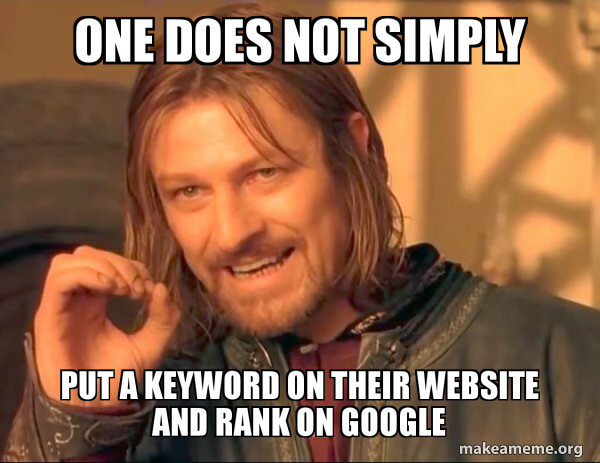If you’re like the majority of independent hoteliers, you have a lean marketing budget. Every marketing dollar matters and mistakes can be costly! Check out our list of seven hotel marketing mistakes you might be making—and how to fix ‘em!
1. Website Friction & Poor Site Health
When a guest comes to your website, there must be a clear path to booking. The more friction there is, the less likely they are to book. Imagine someone walking into your hotel lobby to inquire about vacancies, but before they can do so, they must walk through several doorways, step over a dog, ignore a wailing child, and then stand in a queue for 15 minutes—there’s a good chance they’ll walk away and try the hotel next door instead.
Hotel website friction includes unresponsive website design, awkward site navigation, a hard-to-find booking button, too much or too little content, and inconsistent branding. Website friction creates distrust and an unprofessional image of your property.
Friction can also contribute to a poor Google ranking, which considers what they call Core Web Vitals: load speed, input delay speed, and visual stability.
Solution: Work with a web designer schooled in UX (user experience) and a web content professional to audit and correct all the friction points on your website. Even a few minor updates rather than a complete overhaul can make a huge impact on your bookings.
2. Neglecting SEO
Everything to do with your website is marketing, including Search Engine Optimization (SEO). It’s not as sexy as 360-degree images, video, and augmented reality! But it’s equally important. Let’s use a movie analogy.
While Kate Winslet and Leonardo DiCaprio are the clear stars of the show in Titanic, the movie could not have come to life without reams of support behind the scenes. Whereas your web designer is akin to a movie director who brings all the moving pieces to life, your SEO acts like a publicist who works hard in the background to seek out promotional opportunities (like interviews with the movie’s stars) to generate attention. Without SEO, your website will struggle to get the attention it deserves.
Solution: Your SEO works hard to get Google’s attention! Most people are familiar with the importance of keywords, but it’s also important to customize image file names, use SEO-friendly alt text, and compress image size for quicker site loading. All this information on the backend tells search engines what’s on your website, which serves to reinforce relevance. Don’t overlook those keywords, though! Incorporating a hotel blog and FAQ page are surefire ways to boost your hotel’s SEO.

3. Spamming
Imagine someone standing outside your home, and every time you open your door they’re there, asking you to buy something. You’d call the police, wouldn’t you? While there are anti-spam regulations in place, many businesses seem to send emails indiscriminately anyway, bombarding your inbox with irrelevant and time-wasting information.
It works to some degree, or marketers wouldn’t do it. What results is a large churn rate (unsubscribes), which is alright if you’re gaining lots of new subscribers, right? Well, actually, no. Not only will your open and click rates decline over time, but you could start falling into more and more spam folders.
Solution: The easy solution to spamming is guest segmentation whereby emails are sent to select groups with information that’s relevant, timely, and personalized. Guests welcome marketing emails when information is useful, as indicated by high open and click rates (anything higher than 22% and 3% respectively). And when it’s not useful? It’s likely to remain unopened or generate unsubscribes.
According to Litmus, 60% of retail and consumer goods and services companies personalize emails based on past purchases. In the hotel industry, lists can be configured based on past booking behaviors, such as the number of guests, room and rate type, reason for travel (leisure or business), traveling with kids, etc. From marketing messaging to transactional communications, automate emails based on custom triggers to save a ton of time.
4. Not Using Data
Not using analytics and data is like shooting a cannon full of feathers and expecting them to stick to a target. The data is there but unless you’re analyzing it and leveraging it in your marketing, then what are you basing your campaigns on? With data, your marketing “feathers” become darts that hit the target.
Solution: Guest insight can be gleaned from website metrics, your customer database, survey data, transactions, and email data—and used for shaping your guest segments.
Hotels with property management software can generate operational reports for business projections or to analyze ancillary revenue to determine the success of activities or packages, for example.
Using data to determine rates is essential for maintaining a competitive edge but it’s a hefty affair when manually assessing market data, historical data, room rates at other properties, and consumer demand. Then there’s the task of maintaining rates across online distribution channels! The answer to this is a revenue management tool that automatically collects relevant data and generates pricing recommendations to increase occupancy and revenue in real time across all channels. Bullseye!
5. Doing All the Talking
If you’re doing all the talking, it may be time to sit back and let your guests speak up by sharing their reviews and testimonials. Seen as unbiased, guest reviews are trusted by consumers more than advertising. According to Tripadvisor, 82% of travelers read reviews prior to booking accommodations—what other evidence do you need?
Solution: Instead of sending your web visitors away to an OTA to read reviews, keep them on your site with a curated selection of guest feedback. To add further legitimacy, use an app that displays your rating across review platforms right on your website. Testimonials within emails are also effective, as long as the recipient guest segment aligns with the reviewer.
Remember to engage with reviews by responding to each one (positive and negative) across all platforms. Reputation management software can help you stay on top of this task and, integrated with your PMS, can automate the collection of guest reviews on your favorite review channel.
Don’t overlook user-generated content on social media either! Scan for mentions of your hotel and location for authentic visuals and narratives that can be shared on your platforms as well as in emails and on your website. This marketing gold is ready for the taking (and sharing!).
6. Not Nurturing Repeat Bookings
A lot of effort in hotel marketing is typically expended on garnering first-time bookings. From reviews to SEO, it’s all about making your hotel discoverable, then convincing and converting. One of the biggest mistakes hoteliers can make is to neglect marketing to guests who have already stayed with them. Since this segment is already familiar to you, you can skip the whole discoverability phase! Instead, nurture these relationships for a much shorter conversion path and greater ROI.
Solution: When acquisition costs can be as high as 25% of the total booking but repeat bookings cost five times less, focusing on customer retention is a no-brainer. Post-stay emails are crucial to keeping repeat guests engaged, including thank-you messaging, feedback requests, and targeted offers. Transform guests into VIPs with loyalty programs and offer perks and personalized treatment in addition to points.
The right cloud property management software can leverage guest profiles, email automation, and reward programs to make nurturing loyal customers even easier.
7. Ignoring SMS
Text message open rates sit at 98% on average, so it’s time to stop ignoring SMS marketing and make it part of your campaigns and guest communication. While email marketing remains integral, open rates sit at around 30% by comparison.
Solution: Instituting SMS is easy when integrated with your PMS, allowing you to automate transactional messaging and promotions. SMS is also a great on-site guest communication tool for delivering exceptional customer service and offering promos and upsells during their stay.
The above marketing mistakes are common, so if you are making any of them, don’t feel too bad—you’re in good company! But that doesn’t mean you should continue to ignore the problem. If you’re not sure what to tackle first, we always recommend putting yourself in your guests’ shoes. What do they want most from your hotel? What would make the biggest positive impact? Talk to one of our WebRezPro reps to learn how our hotel tech solutions can help you win more guests.

